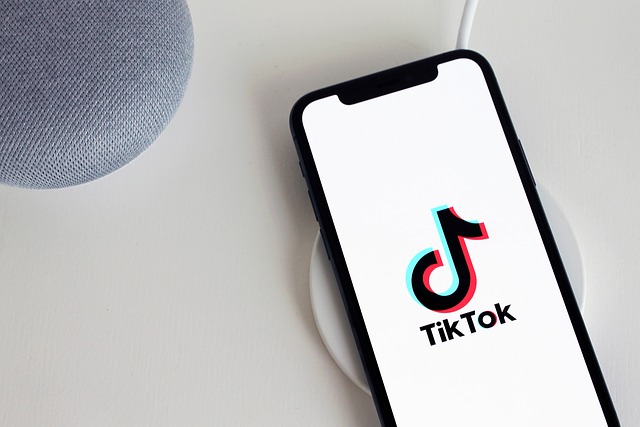Are you torn between Blogger and WordPress for your blog or website? Read our comprehensive comparison to help you make an informed decision. Discover the key differences, features, and benefits of each platform and choose the best one for your online presence.
Blogger is a free blog-publishing service that allows users to easily create and manage a blog. It was created by Pyra Labs and was later acquired by Google in 2003. With Blogger, users can create a blog and publish posts, photos, and videos to it. The platform provides various customization options, such as templates and themes, to help users make their blogs look unique. In addition, Blogger also provides features such as commenting, labelling, and archiving to help users organize their content and engage with their audience. Overall, Blogger is a popular and user-friendly platform for creating and maintaining a blog. WordPress is a popular content management system (CMS) used for creating and managing websites. It was first released in 2003 and has since grown to become the most widely used CMS in the world, powering over 60 million websites. WordPress is known for its ease of use, flexibility, and versatility, making it a popular choice for bloggers, small businesses, and enterprises alike. With a large community of developers and users, WordPress offers a vast array of themes and plugins to customize and extend the functionality of a website. Additionally, WordPress is an open-source platform, meaning that it’s free to use and can be modified to meet the specific needs of a user. Overall, WordPress is a powerful and user-friendly platform that provides a flexible and scalable solution for creating and managing websites of all types and sizes.
The Power of Blogging: Unlocking Your Voice, Building Connections, and Achieving Personal and Professional Growth
- “Blogging is a way of giving a voice to your passions and interests and sharing them with the world.”
- “Blogging has become a key tool for building personal brands and establishing expertise in a particular field.”
- “Blogging allows you to connect with people from all over the world and form a community of like-minded individuals.”
- “Blogging can be a powerful tool for personal and professional growth, helping you to develop new skills and knowledge.”
- “Blogging offers the flexibility to work from anywhere and the freedom to control your schedule and work-life balance.”
- “Blogging can be a lucrative source of income, providing the opportunity to turn your passion into a profitable business.”
- “Blogging is a way to build a legacy and make a lasting impact, by sharing your ideas and experiences with future generations.”
- “Blogging allows you to express yourself creatively and gives you a platform to showcase your talents and ideas.”
- “Blogging is a dynamic and ever-evolving industry, providing endless opportunities for growth and learning.”
- “Blogging can be a transformative experience, helping you to connect with others, grow as a person, and make a positive impact on the world.”
Blogger or WordPress: Choosing the Right Platform for Your Website or Blog
The answer to which is better, Blogger or WordPress, depends on your individual needs and goals for your website or blog. Both platforms have their strengths and weaknesses, and the best option for you will depend on several factors.
Blogger is a good choice if you’re looking for an easy-to-use platform with a simple setup process and minimal maintenance required. It’s also a good option if you’re looking for a completely free platform. However, Blogger has limited customization options and may not be suitable for more complex websites or blogs.
WordPress, on the other hand, is a more powerful and flexible platform. It offers a wide range of customization options and plugins, making it a good choice for more advanced users and websites with specific requirements. WordPress is also a more secure platform, which is important if you’re running an e-commerce site or a site that collects sensitive information. However, WordPress requires more maintenance and technical expertise compared to Blogger, and there may be a learning curve for new users.
In conclusion, Blogger is a good choice if you’re looking for a simple, free platform, while WordPress is a better option if you need a more powerful, customizable, and secure platform for your website or blog.
Monetizing Your Website: A Comparison of Blogger and WordPress with Google AdSense Integration
Both Blogger and WordPress can be monetized with Google AdSense, but in terms of ease, Blogger is slightly easier to set up with AdSense. This is because Blogger is a Google product, and integrating AdSense into your Blogger blog is straightforward and can be done in just a few clicks.
However, in terms of flexibility and control over the placement and appearance of ads, WordPress may be a better choice. With WordPress, you have the option of using plugins or custom code to integrate AdSense into your website and control the placement and appearance of ads. This gives you more control over the monetization of your website, but it also requires a bit more technical know-how compared to the simple setup process in Blogger.
In either case, to monetize your website or blog with AdSense, you’ll need to sign up for an AdSense account and then follow the instructions to add AdSense ads to your site. Once your AdSense account is set up, you’ll be able to start earning money from the clicks and impressions generated by the ads on your site.
In conclusion, both Blogger and WordPress can be monetized with Google AdSense, but Blogger is easier to set up, while WordPress offers more flexibility and control over ad placement.
Maximizing Blog Monetization: Essential Tips for Creating an Engaging and Profitable Blog
Here are some tips for writing an attractive blog that can help you monetize it:
- Choose a specific niche or topic: Select a specific topic or niche that you are passionate about and knowledgeable about. This will help you create content that is both engaging and informative for your audience.
- Create high-quality content: Make sure to create high-quality, well-researched content that is relevant and valuable to your audience. Use images, videos, and other multimedia elements to make your content more engaging.
- Utilize SEO techniques: Use search engine optimization (SEO) techniques to make your content more discoverable by search engines. This includes using relevant keywords, writing meta descriptions, and optimizing your headlines.
- Build an engaged audience: Building a loyal and engaged audience is key to monetizing your blog. Encourage your audience to comment, share your content, and engage with you on social media.
- Offer valuable products or services: In addition to advertising, you can monetize your blog by offering valuable products or services to your audience. This could include e-books, courses, consulting services, or any other product or service that is relevant to your niche.
- Implement advertising: Once you have a substantial audience, you can start implementing advertising to monetize your blog. Google AdSense is a popular advertising program for bloggers, but you can also consider other advertising programs or sponsored content.
By following these tips, you can create a blog that is attractive, engaging, and valuable to your audience, and that can help you monetize your content over time.
Mastering SEO Titles and Meta Descriptions
SEO (Search Engine Optimization) is the process of optimizing a website to improve its ranking on search engine results pages (SERPs). Here are some common SEO techniques that can help improve the visibility and ranking of your website:
- Keyword research: Conduct keyword research to identify the terms and phrases that your target audience is searching for and then incorporate these keywords into your content.
- On-page optimization: Optimizing individual web pages, including the title tag, meta description, header tags, and content, to make them more search engine friendly.
- Content creation: Creating high-quality, original, and relevant content that provides value to your target audience and helps establish your website as a credible source of information.
- Link building: Acquiring backlinks from other websites to help improve your website’s credibility and visibility in search engines.
- Mobile optimization: Make sure your website is mobile-friendly and optimized for different screen sizes and devices.
- Local SEO: Optimizing your website for local search, including claiming and verifying your Google My Business listing, incorporating local keywords, and gathering customer reviews.
- Technical SEO: Improving the technical aspects of your website, including improving page speed, fixing broken links, and ensuring that your website is accessible to search engines.
By implementing these SEO techniques, you can help your website rank higher in search engine results and reach a wider audience. However, it’s important to keep in mind that SEO is an ongoing process and that the best results may take time to achieve.
Unlocking Earning Potential: Monetization Strategies for Your Blogger Blog
There are several ways to earn money with a blog on Blogger:
- AdSense: One of the most popular ways to earn money with a Blogger blog is through Google AdSense. AdSense is a program that allows you to display ads on your blog and earn money from clicks and impressions. To get started with AdSense, you’ll need to sign up for an account and then follow the instructions to add AdSense ads to your blog.
- Affiliate marketing: Another way to earn money with a Blogger blog is through affiliate marketing. This involves promoting products or services on your blog and earning a commission for any sales made through your affiliate link. You can find affiliate programs for products and services that are relevant to your blog’s niche.
- Sponsored content: You can also earn money by creating sponsored content for brands or companies. This could involve writing a review of a product or service, creating a sponsored post, or including sponsored links in your blog posts.
- Digital products: If you have expertise in a particular subject, you can create and sell digital products, such as e-books, courses, or webinars, on your blog.
- Services: If you have a skill or expertise that is in demand, you can offer your services, such as consulting or coaching, on your blog.
By incorporating these earning methods into your Blogger blog, you can diversify your income streams and increase your earning potential. However, it’s important to keep in mind that earning money with a blog takes time and effort and that you’ll need to build an engaged audience and create high-quality content to be successful.
Monetization Made Easy: Comparing Blogger and WordPress for Google AdSense Integrations
Both Blogger and WordPress can be monetized with Google AdSense, but in terms of ease, Blogger is slightly easier to set up with AdSense. This is because Blogger is a Google product, and integrating AdSense into your Blogger blog is straightforward and can be done in just a few clicks.
However, in terms of flexibility and control over the placement and appearance of ads, WordPress may be a better choice. With WordPress, you have the option of using plugins or custom code to integrate AdSense into your website and control the placement and appearance of ads. This gives you more control over the monetization of your website, but it also requires a bit more technical know-how compared to the simple setup process in Blogger.
In either case, to monetize your website or blog with AdSense, you’ll need to sign up for an AdSense account and then follow the instructions to add AdSense ads to your site. Once your AdSense account is set up, you’ll be able to start earning money from the clicks and impressions generated by the ads on your site.
In conclusion, both Blogger and WordPress can be monetized with Google AdSense, but Blogger is easier to set up, while WordPress offers more flexibility and control over ad placement.
Beyond AdSense: Exploring Alternative Monetization Tools for Bloggers
Yes, there are several other monetization tools available besides Google AdSense, including:
- Media.net: A popular alternative to AdSense, Media.net offers website advertising solutions, including display ads, native ads, and sponsored content.
- Adstera is another monetization tool that bloggers can use to earn money from their blogs. Adstera is a performance-based advertising network that offers a range of monetization options, including display ads, native ads, and pop-unders. By joining the Adstera network, you can earn money by displaying ads on your blog and receive a share of the revenue generated by clicks and impressions. Adstera is a relatively new player in the advertising space, but it has already received positive reviews from bloggers and advertisers alike for its user-friendly platform and competitive monetization options.
- Affiliate marketing programs: Many companies offer affiliate marketing programs that allow you to earn a commission for promoting their products or services on your blog.
- BuySellAds: A platform that connects bloggers and advertisers, allowing you to sell ad space on your blog directly to advertisers.
- Amazon Affiliate Program: A program that allows you to earn a commission for promoting Amazon products on your blog.
- PropellerAds: An advertising network that offers a range of monetization options, including display ads, native ads, and pop-unders.
- Chitika: An advertising network that offers display and mobile ads, as well as a local ad program that allows you to target ads to specific geographic locations.
These are just a few of the many monetization tools available to bloggers. By experimenting with different tools and methods, you can find the ones that work best for your blog and help you maximize your earnings. It’s important to note that not all of these monetization strategies will work for every blogger, and the best strategy will depend on your niche, audience, and goals. It’s also important to find a balance between monetization and providing valuable content to your audience. You want to avoid bombarding your audience with too many ads or pushing products too aggressively, as this can harm your reputation and reduce your audience engagement.
Unlocking Monetization Potential: Strategies to Generate Revenue from Your Blog
Here are some effective monetization strategies for bloggers:
- Google AdSense: One of the most popular monetization strategies is to display ads on your blog through Google AdSense. AdSense is a program that allows you to display ads on your blog and earn money whenever someone clicks on one of the ads.
- Affiliate marketing: Another popular monetization strategy is affiliate marketing, where you promote products or services and earn a commission for every sale made through your unique affiliate link.
- Sponsored content: You can also monetize your blog by creating sponsored content for brands. This could include sponsored blog posts, sponsored social media posts, or sponsored product reviews.
- Digital products: Another option is to create and sell your digital products, such as ebooks, courses, or printables. This can be a lucrative monetization strategy, as you keep 100% of the profits from your sales.
- Physical products: If you have a crafty side or enjoy making products, you could monetize your blog by selling physical products. This could include handmade items, printables, or even products you create with a dropshipping business model.
- Services: You can also monetize your blog by offering services, such as freelance writing, consulting, or coaching.
- Memberships: You could also monetize your blog by offering a membership program, where you offer exclusive content, resources, or perks to your members in exchange for a monthly or yearly fee.
It’s important to note that not all of these monetization strategies will work for every blogger, and the best strategy will depend on your niche, audience, and goals. It’s also important to find a balance between monetization and providing valuable content to your audience. You want to avoid bombarding your audience with too many ads or pushing products too aggressively, as this can harm your reputation and reduce your audience engagement.
Profitable Niches Unveiled: Exploring Popular and Lucrative Blogging Niches for Monetization Success
The niche that is most easily monetized can vary depending on several factors, including the current market demand, competition, and the effectiveness of the monetization strategies being used. However, some popular niches that have been successful in monetization include:
- Personal development: This niche covers topics related to self-improvement, growth, and motivation, and has become increasingly popular in recent years.
- Online business and entrepreneurship: This niche covers topics related to starting and growing an online business, and has become popular with the rise of the gig economy and online entrepreneurship.
- Sustainability and eco-conscious living: This niche covers topics related to living a more environmentally-friendly lifestyle, and has become increasingly popular in recent years as concerns about the environment have risen.
- Mental health and self-care: This niche covers topics related to mental and emotional well-being, and has become more popular in recent years as discussions about mental health have become more mainstream.
- Personal finance: This niche covers topics related to budgeting, saving, investing, and managing money, and is a popular choice for advertisers looking to target a financially-savvy audience.
- Health and wellness: This niche includes topics related to physical and mental health, nutrition, and fitness, and is popular with advertisers in the healthcare, beauty, and fitness industries.
- Travel: This niche covers travel destinations, tips, and experiences, and is popular with advertisers in the travel industry looking to target travellers and travel enthusiasts.
- Fashion and beauty: This niche covers fashion and beauty trends, products, and tips, and is popular with advertisers in the fashion and beauty industries.
- Technology and gadgets: This niche covers the latest technology and gadget releases, and is popular with advertisers in the technology industry.
- Food and cooking: This niche covers recipes, cooking tips, and food-related topics, and is popular with advertisers in the food and beverage industry.
- Home and garden: This niche covers topics related to home improvement, DIY projects, and gardening, and is popular with advertisers in the home and garden industry.
It’s worth noting that many other niches can be monetized, and the best niche for monetization will depend on a variety of factors, including the blogger’s interests, skills, and target audience. It’s also important to remember that monetization is not the only goal of blogging and that building a successful blog requires a combination of high-quality content, audience engagement, and effective monetization strategies.
Unlocking Earning Potential: Understanding the Variable Earning Ratio in Blogging
There is no set minimum or maximum earning for bloggers, as earnings can vary widely depending on several factors, including the niche of the blog, the amount of traffic the blog receives, and the monetization methods used.
Some bloggers may earn only a few dollars a month, while others may earn thousands of dollars or more. The earning potential for bloggers is largely determined by their ability to attract and engage a large audience, create high-quality content, and effectively monetize their blogs through a combination of advertising, affiliate marketing, sponsored content, and other methods.
It’s also worth noting that the earning potential for bloggers can change over time as they grow their audience and refine their monetization strategies. Some bloggers may see a slow but steady increase in earnings, while others may experience more rapid growth.
In general, it’s difficult to predict precisely how much a blogger will earn, as there are many variables at play. However, with hard work, dedication, and a commitment to creating valuable content and building a loyal audience, bloggers can increase their earning potential and turn their blogs into successful and profitable businesses.
Boosting Organic Traffic: Effective Strategies to Drive More Visitors to Your Blog
There are several ways to get organic traffic to your blog and earn a handsome income, some of which are:
- SEO optimization: optimizing your blog for search engines, including keyword research, meta tags, and link building.
- Social media promotion: promoting your blog on social media channels, including Facebook, Twitter, and LinkedIn, to drive traffic and increase engagement.
- Guest blogging: Publish high-quality guest posts on other blogs in your niche to build backlinks and drive traffic.
- Content marketing: creating high-quality and engaging content, including blog posts, videos, infographics, and more, to attract and retain visitors.
- Email marketing: building an email list and sending targeted emails to subscribers to drive traffic and increase engagement.
- Influencer marketing: partnering with influencers in your niche to promote your blog and reach a wider audience.
- Community engagement: participating in online communities, including forums, groups, and social media, to build relationships and promote your blog.
- Paid advertising: using paid advertising channels, including Google Ads and Facebook Ads, to drive traffic to your blog and increase conversions.
These are just a few examples of the many ways to get organic traffic to your blog and earn a handsome income. The most effective strategy for your blog will depend on your niche, target audience, and overall marketing strategy.
Discover Popular Bloggers on Blogger.com: Influencers Across Various Niches
Here is a current list of popular bloggers on Blogger.com as this information is constantly changing. However, some popular bloggers in various niches who have used Blogger.com in the past include:
- Perez Hilton – celebrity gossip blogger
- Dooce – lifestyle and parenting blogger
- The Pioneer Woman – food and lifestyle blogger
- The Blonde Salad – fashion and beauty blogger
- ProBlogger – blogging and online business blogger
- Kelly Willard – personal finance blogger
- Helene in Between – travel and lifestyle blogger
- Steve Pavlina – personal development blogger
- The Pajama Chef – a food blogger
- Men with Pens – business and marketing blogger.
It’s worth noting that many bloggers who started on Blogger.com have since transitioned to other platforms, such as WordPress, as their blogs have grown and evolved. Nevertheless, Blogger.com remains a popular platform for bloggers of all levels and niches, and there are likely many successful bloggers on the platform today. It’s difficult to determine the exact number of bloggers who are earning a substantial income through Blogger.com, as this information is not publicly available. However, there are certainly many successful bloggers who are using the platform to monetize their content and earn a significant income.
According to recent estimates, there are over 400 million active blogs on the internet, and a portion of these are likely hosted on Blogger.com. Some bloggers on the platform earn money through advertising, affiliate marketing, sponsored content, and other monetization methods. The earning potential for bloggers on Blogger.com, as with any platform, depends on several factors, including the niche of the blog, the amount of traffic the blog receives, and the effectiveness of the monetization strategies used.
In conclusion, while it’s not possible to determine the exact number of bloggers on Blogger.com who are earning a substantial income, there are likely many successful bloggers on the platform who are using it to monetize their content and earn a significant income.
The Promising Future of Blogging: Evolving Trends and Opportunities for Bloggers
The future of bloggers looks promising, as the demand for quality content continues to grow and more people turn to the internet for information and entertainment. With advancements in technology and the increasing popularity of social media, bloggers have a larger audience and more opportunities to reach and engage with people all over the world.
Blogging is also becoming more professionalized, with many bloggers using their platforms to promote their businesses, offer services, and sell products. Brands and businesses are also recognizing the power of influencer marketing and are partnering with bloggers to reach new audiences and promote their products.
In the future, blogging will likely continue to evolve and become more diverse, with bloggers focusing on niche topics and creating new, innovative forms of content. Artificial intelligence and machine learning are also likely to play a larger role in the world of blogging, potentially changing the way bloggers create and monetize their content.
Overall, the future of bloggers looks bright, and there will likely be many new and exciting opportunities for bloggers to grow their platforms and reach new audiences. Whether you’re a beginner or an experienced blogger, it’s important to stay ahead of the curve and be open to new trends and technologies in the world of blogging.
Conclusion: The Power of Blogging and Monetization Strategies for Success
To conclude, blogging is a popular and effective way to share your thoughts, opinions, and knowledge with a wider audience, and there are many ways to monetize your blog as well. Blogger is a popular blogging platform that is owned by Google, and it is a user-friendly platform that can be used to create a blog for personal or business purposes.
Monetizing your blog can be done through a variety of strategies, including Google AdSense, affiliate marketing, sponsored content, digital products, physical products, services, and memberships. The best monetization strategy for your blog will depend on your niche, audience, and goals, and it is important to find a balance between monetization and providing valuable content to your audience.
Blogging can be a fun and rewarding hobby, and with the right strategy and effort, it can also be a source of income. Whether you’re a beginner or an experienced blogger, it is important to stay up-to-date with the latest trends, tools, and best practices in the blogging world to grow your blog and achieve your monetization goals.









One Comment